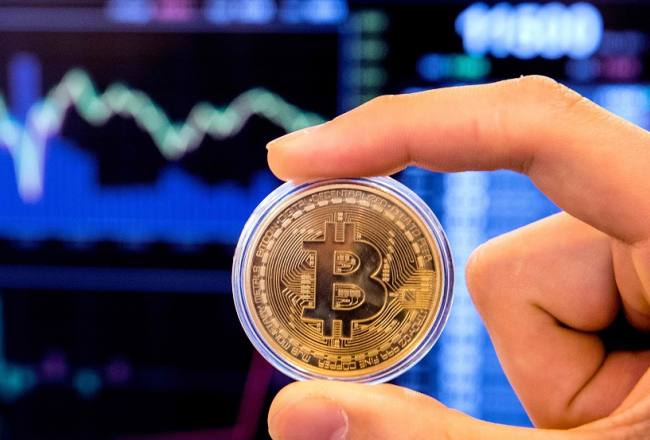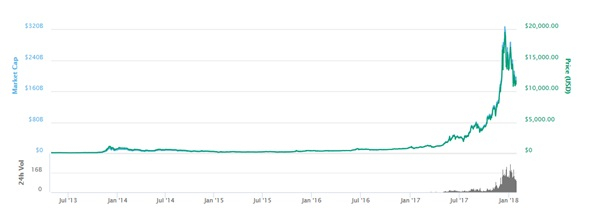
Bitkoins. Foto: AFP/LETA
Everybody has an opinion about the cryptocurrency Bitcoin. Me too.
Bitcoin has seen an astonishing price development in the past year. On 1 January 2017 its price was 964$, which had risen to 19,758$ on 17 December (an increase of 1,950%). At the time of writing (around 6PM – one has to be precise here; the price can fluctuate very much during the day – on 28 January) the price is 11,564$, down some 41% since its peak in December, see Figure 1.
Figure 1: Bitcoin price in US dollars
Source: https://coinmarketcap.com/currencies/bitcoin/
Even at this lower price the total market capitalization of the almost 17 mill. Bitcoins in circulation is around 200 bill. USD (approximately 160 bill. EUR) – much less than euro coins and banknotes in circulation (some 1,200 bill. EUR) but much more than e.g. kroner from my native Denmark (worth some 10 bill. EUR).















